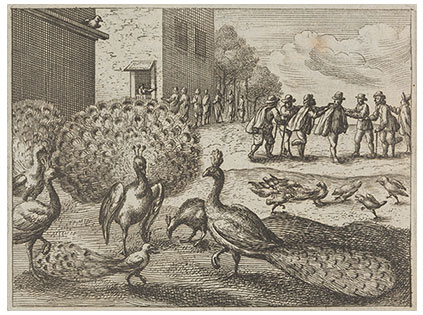Is depth an obsession?
And is obsession sometimes what you need?
Obsession can lead to deep understanding, rich skills, the ability to write the truth or create beauty, as in the meticulous illustrations of Shaun Tan.

My son, Maxim, is obsessed with music and composition. You can listen to one of his recent compositions here.
Lately I’ve been obsessed with the richness of image archives online. I could spend the rest of my life searching and saving the image sites shared on the blog BibliOdyssey.
Some of the amazing resources I’ve been discovering just this morning are:

Beinecke Library’s photo sets on Flickr

Digital resources from the Knitting Reference Library WSA (how’s that for esoteric)
(even more esoteric) The Renaissance Curioso
Pratt Libraries Ex Libris collection on Flickr

Sometimes you have to go deep to get somewhere. My concern is that we don’t allow for this at school. We’re hellbent on cramming the content and discrete skills in our curriculum into our students.
Teachers are often distracted by what they see as duty to cover criteria. Distracted from what, you ask? From what they might do if they had the time to think about it, if they functioned in an environment that encouraged and valued thoughtful experimentation.
But an internal voice urges us: Move on, move on…
There seems to be little or no time for our students to go deeper, no time to evaluate – let’s look at what we’ve done, could we have done it differently? No time to reflect: how do I feel about this? Does this affect me? and how? No time to celebrate – lets’ showcase what we have learned/created.
And what about us, teachers? Do we have the time to think about these things?
It’s different for me as teacher librarian (but then again it’s different for every teacher librarian). My focus isn’t marking, my driving force isn’t keeping up with the onslaught of face to face teaching. I have time to learn, to absorb. Resourcing others’ curriculum allows me to browse, soak up what I find online. Focusing on information fluency encourages me to think about how different people learn.
When we want to reassure ourselves about the future of a young person, as educators, we say that he will be fine as long as he has one passion, something to feel empassioned by, to follow through. But do we create the environment which allows our students to find their passion? And do we provide the time to pursue this passion?
I’m afraid that we distract students by pushing them through a schedule we ourselves are not empassioned by. Are we, as educators, empassioned by what we teach? Or are we trying our hardest to cover material, texts, skill sets?
I may be speaking out of turn here, so please speak up if I am.
I think teachers and students are in a difficult place.
Don’t you think we need a new reason to teach, a new model for schooling?


Absolutely agree that there should be a better reason (a better why) to teach.
The only question is how do we make widespread change?
Yes, that’s the question. Do you have any idea?
Hi Tania
You have a verý good insight into teachers’ reality – it’s exactly how you described it, and this seems to apply globally. More and more separate facts and themes to be covered are added to curricula, and there’s already far too much! Courses get to be hectic races to try and at least superficially scrape all that is required.
The problem, of course, is what to leave out? What is the basic knowledge about a subject that all students should have? Or am I old-fashioned in thinking that students should know some basics before embarking on their own learning paths?
An interesting difference, perhaps, between your education system and ours is that the Finnish system is based on providing young students with a basic knowledge of a wide variety of different subjects at first, so that they can find out what might interest them, what their passion(s) might be, and to give them a wider, more rounded understanding about the world around us. Specializing too early is considered too limited. Whether it works, I don’t really know. Maybe it just fills students’ brains with encyclopedic lists of fractured facts that won’t serve them much in the future.
I am wondering whether a radical change could start from the grass-roots level, or whether we just have to carry on and wait for ministry-level decisions.
(Sorry, I went on far too long!)